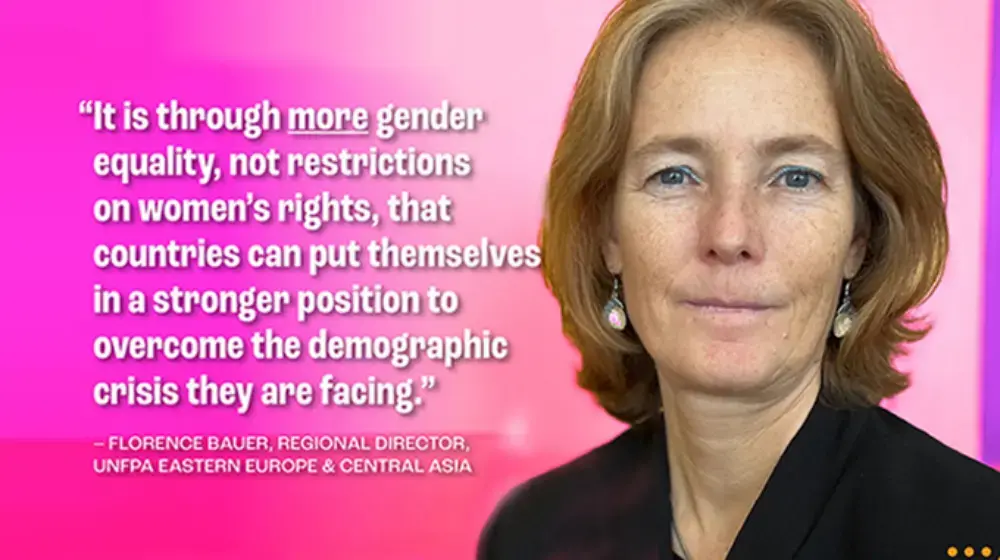Belgrade, 10 July 2018 - The importance of modern family planning has been at the heart of this year's commemoration of the World Population Day globally themed "Family Planning is a Human Right”. This year marks the 50th anniversary of the 1968 International Conference on Human Rights, where family planning was, for the first time, globally affirmed to be a human right.
“Access to voluntary family planning enables women to space their births, benefiting both mothers’ and children’s health. The right to family planning also permits the enjoyment of other rights, including the rights to health, education, and the achievement of a life with dignity." said Dr Doina Bologa, UNFPA Country Director for Serbia at the press conference organized on 10 July in Belgrade, one day ahead of the global marking of the World Population Day.
When it comes to family planning situation regionally, data shows that the countries in our region have some of the world’s lowest modern contraceptive usage rates. According to Multiple Indicators Cluster Survey (MICS 5), modern contraception in Serbia is used by less than one-fifth of women in the general population who are married or in union (18.4%), while a traditional methods, primarily withdrawal, is used nearly twice more (40 %). The situation is even worse in marginalized categories of women, as only 7.2% of Roma women living in Roma settlements in Serbia are using modern contraception, while a traditional methods are used by 54 % of respondents.
Several reasons can explain this: too many women in our region still believe the myth that modern methods are harmful, and social pressure can get in the way of people asking for advice and supplies. Additionally, not all medical personnel are trained to provide quality advice and services, and not always is a wide range of contraceptives available reliably and at costs that people can afford.
“From the demographic perspective, family planning is important in many ways. It empowers women to avoid unplanned pregnancies and prevent negative consequences to their reproductive health. This makes it more likely that women will have the number of children they actually want, thus preserving fertility and promoting general health” stated Prof. Dr Mirjana Rasevic, Head of the Centre for Demographic Research, Institute for Social Sciences.
UNFPA will thus continue to support government efforts to ensure universal access to sexual and reproductive health care. “By adopting the National Program for Safeguarding and Improving Sexual and Reproductive Health of the Citizens of the Republic of Serbia, Government of the Republic of Serbia and Ministry of Health will continue to support health care providers and couples to make informed choices about their reproductive health, including for family planning”, added Dr Vesna Knjeginjic, Assistant Minister at the Ministry of Health.
Sustainable Development Goal targets (such as target 3.7, to achieve universal access to sexual and reproductive health services), and achieving many of the Goals depends in part on the ability of women to exercise their reproductive rights. Development Partnership Framework (DPF) for Serbia 2016-2020 developed in close cooperation and through a partnership between the Government of the Republic of Serbia and the United Nations Country Team in Serbia, also envisages efforts to improve counselling services about family planning and the availability of reproductive health services and commodities in the country.




